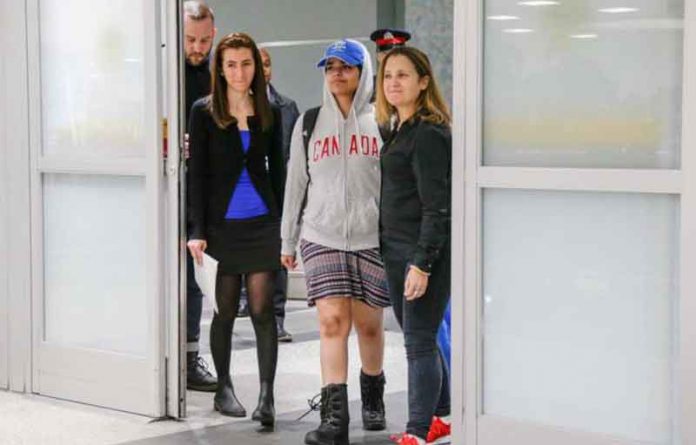Qunun’s case has drawn global attention to Saudi Arabia’s strict social rules, including requirement that women have permission of male “guardian” in order to travel
By Anna Mehler Paperny
TORONTO – (Reuters) – Rahaf Mohammed al-Qunun plans to pursue an education, get a job and “live a normal life” in Canada – things she said she could not do in her home of Saudi Arabia, which she fled fearing for her life, she told Canadian media on Monday.
Being in Canada is “a very good feeling,” she told the Canadian Broadcasting Corporation two days after arriving in Toronto from Bangkok.
“It’s something that is worth the risk I took.”
Qunun grabbed international attention last week after she barricaded herself in a Bangkok airport hotel room to resist being sent home to her family, which denies abusing her. Qunun refused to meet her father and brother, who arrived in Bangkok to try to take her back to Saudi Arabia.
The United Nations High Commission on Refugees granted her refugee status, and Canada agreed to take her in.
Canada’s decision to grant Qunun asylum comes at a delicate time. Relations between Ottawa and Riyadh have been tense after Canada demanded the immediate release of jailed rights activists last year. Saudi Arabia retaliated by freezing new trade with Ottawa and forcing many of its students to return to the kingdom.
Qunun’s case has drawn global attention to Saudi Arabia’s strict social rules, including a requirement that women have the permission of a male “guardian” in order to travel, something rights groups say can trap women and girls as prisoners of abusive families.
In her CBC interview, Qunun said: “I felt that I could not achieve my dreams that I wanted as long as I was still living in Saudi Arabia.”
Having come to Canada, “I felt that I was reborn, especially when I felt the love and the welcome,” she said.
In her new home, “I will try things I haven’t tried. I will learn things I didn’t learn. I will explore life. … I will have a job and live a normal life.”
(Reporting by Anna Mehler Paperny; Editing by Peter Cooney – Credit Thompson Reuters Trust)








